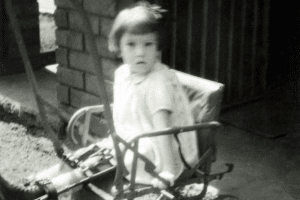From the outside looking in, writing an autobiography can seem like an overwhelming—even impossible—task. And to be fair, there’s a reason it feels that way. We won’t sugarcoat it: autobiography writing takes a considerable amount of time, effort, and persistence. For one thing, you need to think back over a lifetime of experiences and decide which ones bear mentioning. Then comes the harder part: turning those memories into a story that’s both coherent and compelling.
But while writing an autobiography is no walk in the park, it is absolutely doable—with the right mindset, resources, and preparation. What’s more, those who’ve completed this meaningful journey into their past will all tell you the same thing: it’s 100 percent worth it. At LifeBook Memoirs, we understand the value of capturing your life story, and, with that in mind, we’ve compiled a list of practical tips to help make the process easier for you.
Getting organized
As you might expect, a fair amount of preparation is needed to make sure that no foundational experiences or relationships are left out of your autobiography. Not only does preparation help you cover all your bases, but it also makes the writing process much smoother when the time comes to sit down and start.
Here are a few simple but effective ways to lay the groundwork.
1. Decide on the era you want to cover
Do you want to write about your entire life or a specific period, such as your childhood or career? Choosing a clear scope at the start will help you stay focused and avoid getting overwhelmed by the sheer volume of your memories.
2. Think through how you want to organize your story
Do you want to tell it in chronological order, or would you prefer to bounce between key moments and organize it around different themes? Deciding on a structure early will help shape your storytelling voice and give your readers a clearer path to follow.
3. Make a list of events you want to share
Include dates if you can. Then, under each event, jot down any related thoughts, feelings, and memories that come to mind—it’ll help you reconnect with the emotional texture of each moment and bring depth to your writing later on.
4. Write down the names of people who’ve impacted your life
Under each name, include some notes about how that person taught you, helped you, or influenced your journey. These reflections will help you highlight meaningful relationships and bring authenticity to your narrative.
Diving deeper
When you’ve laid the groundwork, you can start digging deeper into your past—recalling the people, places, and experiences that have shaped you. Here are a few tips for bringing those memories to the surface.
5. Jot down your defining moments from each decade
Doing this will help you map how your life has unfolded and reveal patterns, turning points, and recurring themes that may be worth exploring in your story.
6. List the schools you attended
From preschool to grad school, include them all. Jot down the names of classmates and teachers and specific memories tied to each. You’ll find that it’s often the smallest details that spark the richest stories.
7. Put together a résumé
List the jobs you’ve had and then reflect on the people you worked with, the challenges you faced, and the accomplishments you’re most proud of. Revisiting your work life can uncover powerful stories of growth, resilience, and transformation.
8. Create a travel log
If you’ve been fortunate enough to travel, note down the continents, countries, and cities you’ve visited. Think about the people you met, the cultures you experienced, and the ways in which those journeys shaped your perspective.
9. Compile random thoughts and reflections
These can end up being some of the most meaningful parts of your story, even if you’re not yet sure where they belong within it. Don’t worry about that right now, though—you can always search for ways to weave them in later.
10. Don’t be afraid to ask for help
Family and friends can be invaluable when it comes to jogging your memory, recalling specific details, and offering perspective about what to include in your autobiography. They can also help clarify dates, names, places, and sequences of events—ensuring your story is both accurate and rich in detail and color.
Help can come in other guises, too. Even if, after reading these tips, the idea of writing your life story feels overwhelming, consider hiring a professional ghostwriter. Ghostwriters work behind the scenes to help you tell your story and shape your memories into a compelling narrative. They’re commonly used by busy professionals, but anyone can benefit from their expertise—especially if you’re unsure where to start and looking for a way to take the pressure off.
Putting pen to paper
With your preparation complete, you’re ready to begin. Congratulations on reaching this point and taking the meaningful step forward from here. You’ll be doing more than just writing a book—you’ll be preserving your unique perspective and your lived experience, something your family will treasure for generations.
If you’d like any support along the way, we at LifeBook Memoirs are here to help. Our skilled interviewers can meet you and record your story in a series of warm and friendly conversations. Then, a handpicked professional ghostwriter will craft your story in a voice that’s unmistakably yours.
It’s easy to get started. Just click here or call 1-561-782-9119. Our team is standing by to answer all your questions. We can’t wait to hear from you!
Written by the LifeBook Memoirs editorial team




